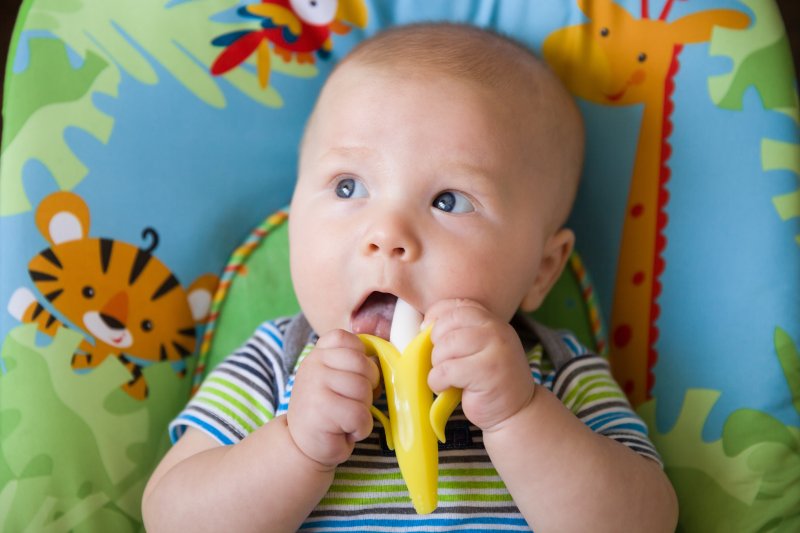Is My Baby Teething?
August 8, 2021

If you’re a first-time parent, it isn’t always easy recognizing when your baby is teething. As their primary teeth begin to erupt, the discomfort becomes very apparent for most infants. While some seem to take it quite well, only crying here and there, others experience a much more difficult time. In this article, you’ll learn about the most common symptoms associated with teething and what you can do to help your little one get relief from the pain.
Which Symptoms Point to Teething?
If you’re not entirely sure if your baby is “cutting teeth” as many people refer to it, it can be helpful to review the following this, as these symptoms are often the most obvious:
- Excessive drooling
- Facial rash (often caused by drool)
- Crying and fussiness
- Tender gums
- Inability to sleep or eat
- Gnawing on their hands or nearby objects
- Pulling their ears
- Coughing
- A slight temperature that is less than 101 Fahrenheit
If your baby has an elevated fever over 101 or experiences diarrhea or vomiting, it’s time to get them in to see a pediatric dentist, as these are not normal symptoms.
How You Can Help Your Baby Feel Better
There are many beneficial ways to help your little one experience less discomfort during this normal yet difficult phase. While you’re always welcome to discuss further solutions with your child’s dental professional, here are just a few of the ways many parents provided their little ones with relief:
- Offer your child teething toys, as they can relieve some of the pain temporarily. These can include textured teethers or those with a slightly harder consistency. However, those filled with liquid are strongly discouraged, as they can burst or leak.
- Use cold items to help numb their gums. Placing teething toys, washcloths, and certain foods in the refrigerator can help to relieve some of the pain when given to your baby. The cold temperature helps to numb their gums and provides a reprieve from the crying and fussing.
- Provide your child with an over-the-counter pain reliever. If they are at least two months old, you can use the dosage instructions and administer the appropriate amount of acetaminophen. If your child is over 6 months of age, you can incorporate ibuprofen.
Be sure to avoid giving your baby anything that contains benzocaine (i.e., Orajel), as this can be toxic to young children. You should also avoid teething necklaces, as they can pose a potential choking hazard, especially if you place them down for a nap while wearing them.
Once your child’s baby teeth start to erupt, you’ll need to schedule their first appointment with their pediatric dentist. It is during this visit you can expect them to discuss ways to keep your little one’s new teeth in optimal shape to avoid tooth decay and cavities.
About the Author
Dr. Melissa Rozas is a pediatric dentist in Coppell who completed her Doctor of Dental Surgery degree at the University of Texas School of Dentistry in Houston. After finishing her pediatric dental residency at UT/Herman Hospital, she became board certified by the American Board of Pediatric Dentistry. She and her team believe in providing transparent and valuable tips to parents when it comes to moving through the teething phase. If you have questions or would like to learn more about what you can do to help your little one cry less because of their erupting teeth, contact us at (972) 433-7516.











